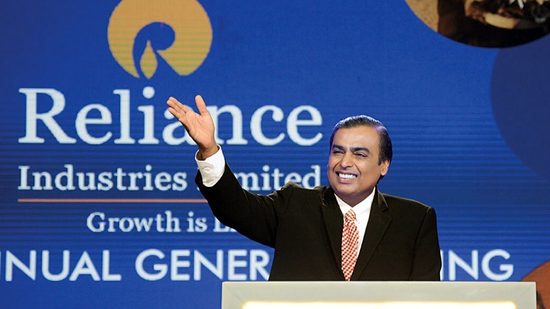The US Federal Reserve announced their fourth consecutive 75 basis-point increase in interest rates while also hinting that their aggressive battle to fight inflation may be nearing its conclusion. As a result of the unanimous decision, the benchmark federal funds rate is now expected to be between 3.75% and 4%, which is the highest level since 2008.
“Mr. Market was anticipating the U.S. Fed’s 0.75 percentage point rate increase, which has demonstrated a commitment to sticking with the programme until the work is finished. It appears that the Fed funds rate will be at a level of 5–5.5% in the first quarter of 2023, with a real GDP of 0%–1% but an approximate nominal GDP of 6%–7%. This is not the same as a bear market. The markets will most likely begin to anticipate the rate hike freeze and subsequent easing to return the Fed rate to the neutral range of 2.25%–2.5% by H1 2023. Thus, once core PCE inflation rates appear to be going below the 5 year treasury yields in 2023, the outlook might be fairly optimistic” said Vikas Gupta, CEO and Investment Strategist, OmniScience Capital.
Outperformance of Indian stock markets to continue: Sanjiv Bhasin
Sanjiv Bhasin, director of IIFL Securities, anticipates that the Indian stock markets will continue to outperform. “The Federal Reserve is no longer credible. They are using distinct tones of speech. While the chairman is hawkish, several of the members are dovish. For overseas investors who have started buying since last week, FOMO (fear of missing out) is a major issue. The rules are being set by retail flows. By day’s end, the Fed’s announcement is likely to be forgotten. November should bring about new highs, according to Mr. Bhasin.
Russian rouble falls past 62 against the dollar to a more than two-week low
The Russian rouble fell to a more than two-week low versus the dollar in early trade on Thursday as the US dollar continued to strengthen due to falling global oil prices following the Federal Reserve’s interest rate hike.
Australian shares decline as banks and miners maintain the Fed’s aggressive tone
Following a significant rate hike and hawkish remarks from the U.S. Federal Reserve that shocked global markets, Australian equities ended the day lower on Thursday. Losses were driven by rate-sensitive banking firms and domestic miners.
Gold declines as Fed’s Powell diminishes pivot expectations
Following a tumultuous day, gold prices were unchanged on Thursday as prospects for a shift faded as U.S. Federal Reserve Chair Jerome Powell signalled a further increase in borrowing costs.
As of 0637 GMT, spot gold was unchanged at $1,635.42 per ounce after dropping 0.8% on Wednesday.
Weary investors anticipate little relief from the Fed hike doom.
A downbeat statement from the U.S. The Federal Reserve has cast doubt on the outlook for asset values, giving investors struggling to manage this year’s continuous interest rate increases additional reasons to play it safe.
After the Fed, Hong Kong hikes rates and foresees further increases in borrowing costs.
In a statement on Thursday, the Hong Kong Monetary Authority (HKMA) increased the base rate charged through the overnight discount window by 75 basis points to 4.25% and warned consumers to prepare for a period of higher commercial rates and prudent risk management.
Rupee depreciates by 8 paisas to 82.88 US cents.
Following the US Federal Reserve’s decision to raise interest rates while maintaining a hawkish posture, the rupee lost 8 paise to 82.88 against the US dollar in morning trade on Thursday.
The local unit began trading at 82.87 versus the dollar on the interbank foreign exchange but lost ground to quote at 82.88, losing 8 paise from its previous finish.
The impact of the Fed’s new strategy on the Indian stock market
After US Federal Reserve chairman Jerome Powell overnight warned that the US central bank would raise interest rates more than previously anticipated, sapping the risk appetite, Indian stock markets slumped today, matching a decline in Asian rivals. For the fourth time in a row, the Fed increased interest rates by 75 basis points, increasing the top of its target range to 4%, the highest level since 2008.
On ongoing concerns over US policy tightening, copper eases
On Thursday, copper prices decreased as risk sentiment deteriorated and the outlook for metal demand deteriorated due to the possibility of a lengthy tightening of monetary policy by the US Federal Reserve.
After Powell of the Fed suggests a higher peak rate, the rupee is likely to decline
After U.S. Federal Reserve Chair Jerome Powell said that interest rate hikes might have to climb more than what was previously anticipated, the Indian rupee is projected to weaken versus the dollar on Thursday.
The projected opening rate for the rupee against the dollar is 82.85-82.90, down from 82.7800 in the previous session.
For Asian stock and currency bulls, a hawkish Fed is terrible news.
a hawkisher than anticipated On Wednesday, Jerome Powell sent US stocks plummeting, and many anticipate more of the same for Asia on Thursday. A stronger dollar and higher US interest rates for a longer period of time are likely to have an adverse effect on regional development, drag down stocks, and increase pressure on currencies.
Asian stocks decline as Powell signals further rate increases
After Jerome Powell stated that the Federal Reserve would raise interest rates more than initially anticipated, Asian stocks fell, stifling risk appetite and causing the worst day for global equities in a month.
Traders are keeping a close eye on the Yen due to a recent sharp swing.
Currency traders were on edge on Thursday as a result of a significant turnaround in the yen following a hawkish Federal Reserve, with Japan off-limits and the possibility of intervention still lurking.
Oil prices decline as more rate increases obscure the tightening gasoline market
After Federal Reserve Chair Jerome Powell predicted higher interest rates than initially anticipated, overshadowing tightening supply, oil prices plummeted.
The Fed remains Wall Street traders’ number one enemy when considering bonds.
A Federal Reserve that is eager to increase the stakes at every turn will present a challenge for Wall Street money managers looking to jump back into Treasuries after months of losses.
Following a Fed action, the Hong Kong central bank increases interest rates.
Hours after the U.S. The Federal Reserve announced a rate increase of the same margin, the Hong Kong Monetary Authority (HKMA) on Thursday increased its base rate charged through the overnight discount window by 75 basis points to 4.25%.
Powell says that it will take time for rate hikes to reduce inflation
According to Fed Chair Powell, it will take time for rate hikes by the major banks to reduce inflation, which would inevitably hamper US GDP. Even though the housing market has slowed, he added that it will “likely” take below-trend growth for the attempt to succeed since “it would take time… for the full impacts of monetary restriction to be apparent, notably on inflation.”
After the Fed was regarded as tilting dovish, the dollar fell
After the Fed hinted that future interest rate rises to combat high inflation could be made in smaller increments, the dollar fell significantly against key currencies
Powell calls it “extremely premature” to think about stopping rate increases
Inflation will become entrenched if we don’t bring it down, so it is premature to think about pausing. In December, we’ll update our projection of how high rates will need to go.
Fed could start talking about slower rate increases in December
In December, the Fed will start debating slower rate increases. Jackson Powell
Powell’s advice on when to slow the rate of increase
According to Powell, “the question of how high to raise rates and how long to maintain monetary policy is now considerably more relevant than the question of when to decrease the pace of rises.”
“The ultimate level of rates will be higher than previously projected,” predicts Jerome Powell.
Powell adds more details
Demand greatly outweighs supply, the labour market is still severely constricted, and there are still plenty of job opportunities in the US. Additionally, the slower output growth is placing pressure on company fixed investment.
Powell, Fed
Fed Chair Jerome Powell declares, “We are firmly committed to reducing inflation and we have resolved.”
Wall Street rises after the Fed suggests lesser hikes
The Nasdaq Composite increased 12.89 points, or 0.12%, to 10,903.73 and the S&P 500 jumped 13.5 points, or 0.35%. The Dow Jones Industrial Average increased 220.81 points, or 0.68%, to 32,874.01.
Jerome Powell, the chair, will address at a press conference soon
At his news conference, which starts at 12:00 am (IST) in Washington, US Federal Reserve Chair Jerome Powell will have the opportunity to go into more detail about the prospects for upcoming meetings.
White House on the Fed rate increase
The recent increase in the Federal Reserve’s benchmark interest rate, according to White House press secretary Karine Jean-Pierre, will assist to reduce inflation, and an increase in mortgage rates should do the same for the housing market.
Important lessons from the Fed’s decision
The Fed raises federal funds target rate by 75 basis points to 3.75%-4% range for the fourth consecutive meeting.
– Officials predict “ongoing increases” in borrowing costs, but they add a caveat that they want to achieve a tightening that is “sufficiently restrictive” to eventually bring inflation back to 2%.
The statement has also undergone significant changes, including the addition of a new line that signals that the tightening process is nearing its end: “In determining the pace of future increases in the target range, the Committee will take into account the cumulative tightening of monetary policy, the lags with which monetary policy affects economic activity and inflation, and economic and financial developments.”
– Everyone agrees on the outcome.
Stocks climb following Fed decision
Stocks recovered their losses as the Federal Reserve hinted that its most vigorous anti-inflation campaign since the 1980s may be nearing its conclusion. Traders are now looking for additional information from Chair Jerome Powell. S&P 500 increased.
‘Continuous increases’ will probably be required to…
In order to get rates to a point where they are “sufficiently restrictive to return inflation to 2% over time,” the Fed stated that “ongoing hikes” will probably be required.
FOMC declaration
The Fed’s quick rate hike pace has had an impact that is still being felt, and the policy statement was updated to reflect this. It also expressed a desire to find a level for the federal funds rate that would be “sufficiently restrictive to return inflation to 2% over time.”
Fed announces significant rate rise
In order to make up for the “cumulative tightening of monetary policy” it has already implemented, the Federal Reserve hinted future hikes in borrowing costs could be made in smaller steps on Wednesday as it fought the worst outbreak of inflation in 40 years.
Former Fed Chairman Greenspan predicts a “tailwind” for the currency through 2023.
The dollar will experience a monetary “tailwind” in the upcoming year, according to former Fed Chair Alan Greenspan, even if US monetary policymakers scale back or stop their present push to raise interest rates.
Dec. rate hike of 50 or 75 basis points
The Fedwatch tool from CME Group shows that traders are split on whether a rate hike of 50 or 75 basis points will occur in December. The Fed is scheduled to announce its interest rate decision soon, but attention will be on Jerome Powell’s subsequent remarks.
Mega Cap tech affects stock prices
While investors awaited word from Fed Chair Powell on whether it would be reasonable to anticipate a slowdown in the pace of rate hikes moving forward, stocks dipped as statistics revealed sustained labour-market strength. The tech-heavy Nasdaq 100 underperformed as well as the S&P 500, which experienced its third straight loss. After its CEO gave a positive cash outlook, Boeing increased.
Government bond rates in the Eurozone remain stable before the Fed
After US job data dampened hopes for the central bank to hint it may not hike interest rates as rapidly, the yields on eurozone government bonds dipped higher.
Stocks decline prior to anticipated Fed hike
Investors were nervous ahead of today’s widely anticipated big interest rate hike from the US Federal Reserve, which sent European and US stock markets down. On Wall Street, the Nasdaq, which is heavily weighted in technology, fell 1.3%, the broader S&P 500 fell 0.8%, and the Dow down 0.4% in noon trade.
The larger market is probably going to stay rather quiet.
Prior to the Federal Reserve’s post-meeting announcement at 11:30 p.m. tonight, when the institution is anticipated to announce its fourth 75 basis point interest rate increase, the broader market is likely to remain rather muted.
Another massive increase in interest rates is imminent.
As the Fed continues to fight inflation, Americans should prepare their money for further higher interest rates this year. Prior to the Federal Reserve’s meeting on interest rates, investors exercised caution.
According to ADP, US businesses create 239,000 new employment.
Despite the US Fed’s efforts to cool the economy, hiring at US corporations increased in October by more than anticipated, primarily due to a jump in the leisure and hospitality industries. This highlights the strong labour demand. According to data from ADP Research Institute and Stanford Digital Economy Lab, private payrolls increased by 239,000 last month following a revised 192,000 increase in September.
This year, S&P 500 movements are the smallest before the Fed.
The S&P 500 fluctuated on Wednesday, reflecting caution as the index is presently headed for its smallest range this year. Of course, depending on how the market responds to the Federal Reserve’s decision, things could change.
8 of the same 10 central banks increased their rates.
Comparatively, in September rates were tightened at the fastest rate in at least 20 years by a combined 550 basis points across eight of the same 10 central banks. The most recent changes pushed the total rate increases from G10 central banks in 2022 to 2,050 bps.
Experts at Barclays and HSBC caution
According to strategists at Barclays Plc and HSBC Holdings Plc, who advise caution, the stock market’s recent exuberance is unwarranted because the surge is overly dependent on expectations that the US Federal Reserve will give clues that rate hikes will slow.
Falling stocks and a generally weaker dollar
Global market indices declined, while the dollar’s value relative to other major currencies was somewhat lower. According to a Reuters poll, currency experts believe the dollar’s decline is only temporary.
FOMC declaration
At 2 pm EDT (11:30 pm IST), the Federal Reserve is scheduled to announce its policy statement, but traders will be listening for comments from Fed Chair Jerome Powell beforehand.
As the Fed’s cycle of tightening comes to an end, gold will somewhat recover in 2019.
Next year, the average price of gold will increase from current levels to $1,712.50. As the Fed and other central banks swiftly increased interest rates to combat inflation, the price of gold fell from over $2,000 an ounce in March to roughly $1,650.
Oil avoids major movements
Despite a report from the industry indicating yet another significant drop in US crude stocks, oil held steady at around $88 per barrel, avoiding any significant movements. After fluctuating between gains and losses, West Texas Intermediate futures prices, which have been trapped in a $12 band for the past month, showed little change. According to an Energy Information Administration report, US oil stockpiles decreased by 3.12 million barrels last week.
Dollar declines globally
As investors awaited a Federal Reserve policy decision today amid expectations that it would indicate a slowdown in the pace of future rate hikes, the dollar fell broadly. The dollar dropped 0.8% to 147.03 yen against the euro, which was 0.11% stronger against the dollar at $0.9885.
Prior to the Fed statement, US rates barely changed
Hours before the US Fed is widely anticipated to increase its policy interest rate by 75 basis points, Treasury yields were barely changed today amid market anticipation the central bank may announce an easing of monetary tightening. The benchmark 10-year Treasury note yield was above 4%, while the two-year yield, which normally swings in lockstep with forecasts for interest rates, was over 4.5%.
“A 75 basis point increase won’t surprise anyone”
A fourth consecutive 75 basis point rate hike, according to market analyst Fawad Razaqzada of City Index and FOREX.com, won’t surprise anyone, but the real question is whether the Fed will indicate that it is prepared to shift to a less hawkish stance in its meetings in December and the ones that follow.
Experts on increasing rates
Because rising interest rates increase debt repayment obligations for both individuals and corporations, which reduces consumer spending and investment, economists worry that they will precipitate a worldwide economic collapse.
Stocks on Wall Street start off lower.
In anticipation of what traders anticipate would be another significant interest rate increase from the Federal Reserve to combat the worst inflation in four decades, US markets are starting the day slightly down. The Nasdaq, Dow Jones Industrial Average, and S&P 500 were all down 0.4%.
High inflation
The central bank has been raising interest rates in an effort to reduce demand and combat rising inflation amid worries that the robust labour market could lead to wage spiralling.
In range-bound trading, oil holds steady
Before the US Fed’s most recent interest rate decision and as a business report predicted another significant drop in US crude stockpiles, oil traded close to $88 a barrel.
In a holding pattern before the Fed’s rate decision
Prior to the Federal Reserve’s decision on whether to raise interest rates in an effort to control inflation, US futures trading on Wall Street appeared to be in a holding pattern. The S&P 500 increased less than 0.1%, and futures for the Dow Jones industrials were steady.






